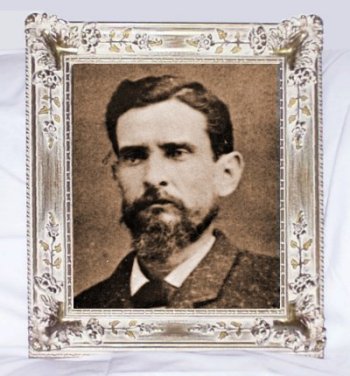|
THE LIFE SKETCH OF GEORGE WILCOX BURRIDGE (Part 10 1867 Journey to the British mission) Written by his grand-daughter, Ann M. Neddo
|
|||
|
Part 1 1805 - 1831 Youth Part 2 1831 - 1847 Army Part 3 1847 Courtship & Marriage Part 4 1847 - 1852 Marriage, Baptism and the End of a Career Part 5 1853 - 1855 Isle of Malta mission Part 6 1855 - Going to Zion Part 7 1855 - 1857 Hard times Part 8 1857 - 1860 (?) Johnson's army and back to Rush Valley Part 9 1866 - 1867 Patriarchal blessings, Mission call and departure Part 10 1867 Journey to the British mission Part 11 1867 - Mission Part 12 1868 - Mission Part 13 1868 - Return Home Part 14 1868 - 1888 Bishop, Storekeeper, and Iindians - oh my Part 15 As seen by others Part 16 1880 -1888 The culmination of a lifetime Part 17 1888 -1891 Patriarch and Death Part 18 Miscellaneous |
The mountain roads were in terrible condition. It was extremely hard climbing. At Yellow Creek the train was forced to stop while with help of a Government Company, they built a new bridge and made a road by laying down brush and willows, which they cut for this purpose, then throwing some earth over them to enable the wagons to cross. Many reports reached them about Indians attacking different stations and driving off the stock. At Black Lead Station they unloaded grain they were freighting for the Overland Stage Company. This was a relief as the heavy load had retarded their progress. On the twelfth of June they made a long drive, word was brought that Sharp's Ox Train had been attacked by Indians. Scouts reported after dark that Indians were ahead but it proved to be a large escort with the stage who mistook the Mule Train for Indians too. This was a time when men's nerves were taut and they traveled and camped ever on the alert and although this proved to be a false alarm and an agreeable mistake for both parties the station they nooned at was attacked soon after the Kimball Mule Train had left. As they plodded off the weary miles, they passed the scene of an Indian attack on Sharp's horse and stock place. The Indians had succeeded in getting five head of stock and shot one of the young men who were with the herd. They passed a place where a stagecoach had been attacked and over taken by the Indians. The driver was killed and three of the horses were wounded. Not satisfied with that, they had scattered and destroyed the mail. The stations and herd houses between Supper Springs and Little Laramie were burnt and George and his companions looked at the ruins some still smoking. They had crossed the mighty barrier of the Rockies and finally came to the wide flung, constantly flowing Platte River. One more barrier for them to hurdle and only one ferry to use. So on the banks of this mighty stream they camped waiting their turn across. Once across they were on their way once more until the twenty-first of June they found the first station of men cutting timber for the railroad. The next day while they were nooning an alarm of "Indians" was given and in about five minutes the mules were driven from their grass munching and herded in. The men went upon the rising ground to meet the Indians, but again it proved a false alarm. It turned out to be a scouting party from the station three or four miles away. June twenty-sixth found these hardy missionaries gazing at the puffing iron horse on its tracks of steel. That morning they were told to make all haste in getting together all of their gear they hurried along the track to the water tank where they were to board the train. Alas! the time had been off - there they stood, no mule train to travel with and just a billow of black smoke from the speeding train to bid them farewell as it disappeared in the distance. George went back to the station, found out a train was leaving Inlisburgh station at nine for Omaha and determined to catch that one. When he reached Omaha he bought a few articles of clothing. From Omaha he went by river steamer to St. Louis and then back to the train for New York where he had to remain for four days. After the quietness of the vast plains and peaceful days of the Valley, New York was loud and gay and frivolous. Serious-minded George found nothing enticing about this "evil den" - and was heartily tired of it before he could board the steamer "City of London" for Liverpool. The crossing was good. On July 25th they left Queenstown, having a good view of the lovely green coast of Ireland. Standing at the rail deck, eager eyes searching for homey familiar sights they saw Wales about noon and at sunset they entered the River Mersey and made fast at the docks for the night. The next day saw George leaving the ship and stepping on the shores of England. How green and close everything looked to eyes accustomed to the browns and grays of vast miles of sun-dried, hard baked western arid spaces.
|
||
| About this site |
GEDCOM files
|
Other stories
|
| Reunion news |
||
|
Family Newsletter |
George's diaries
|
|
